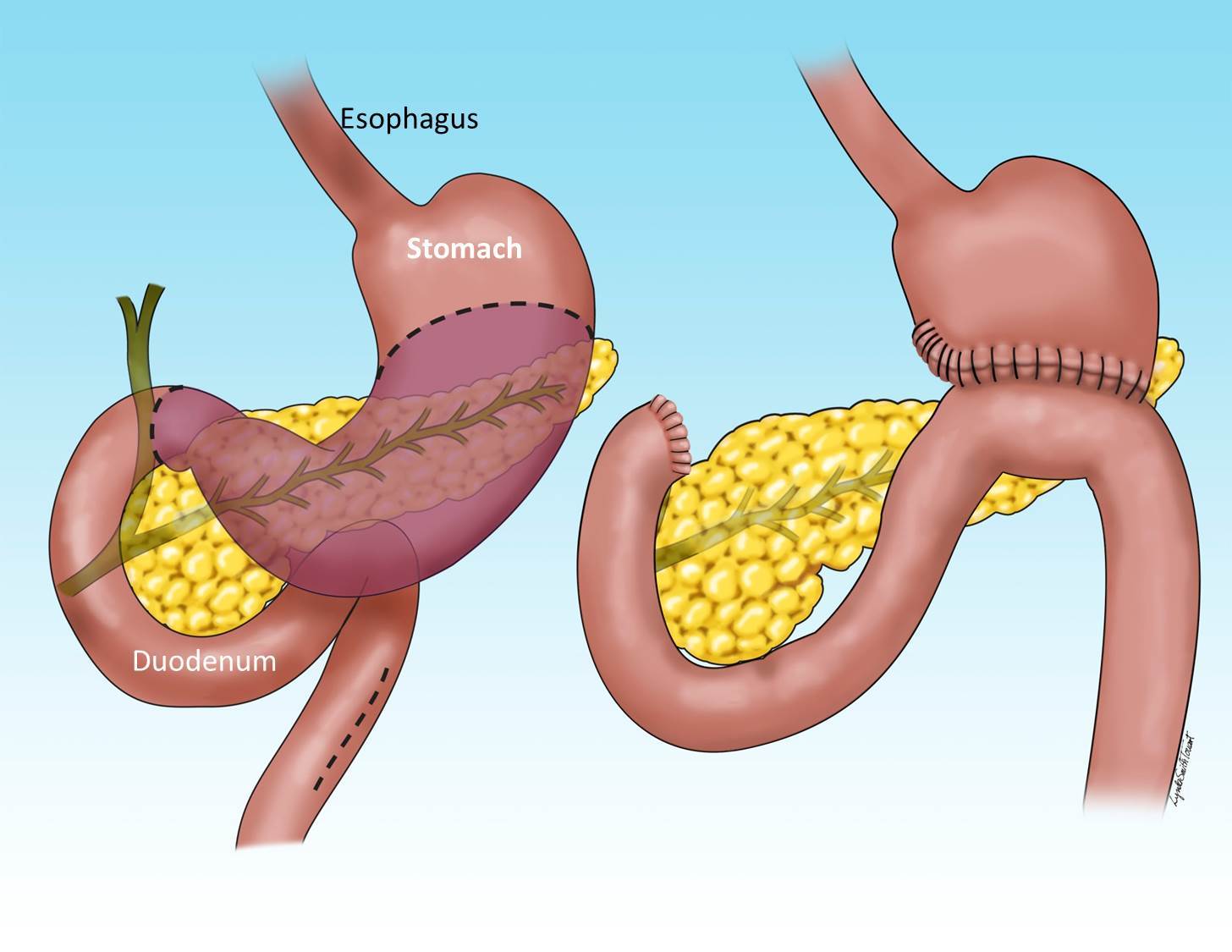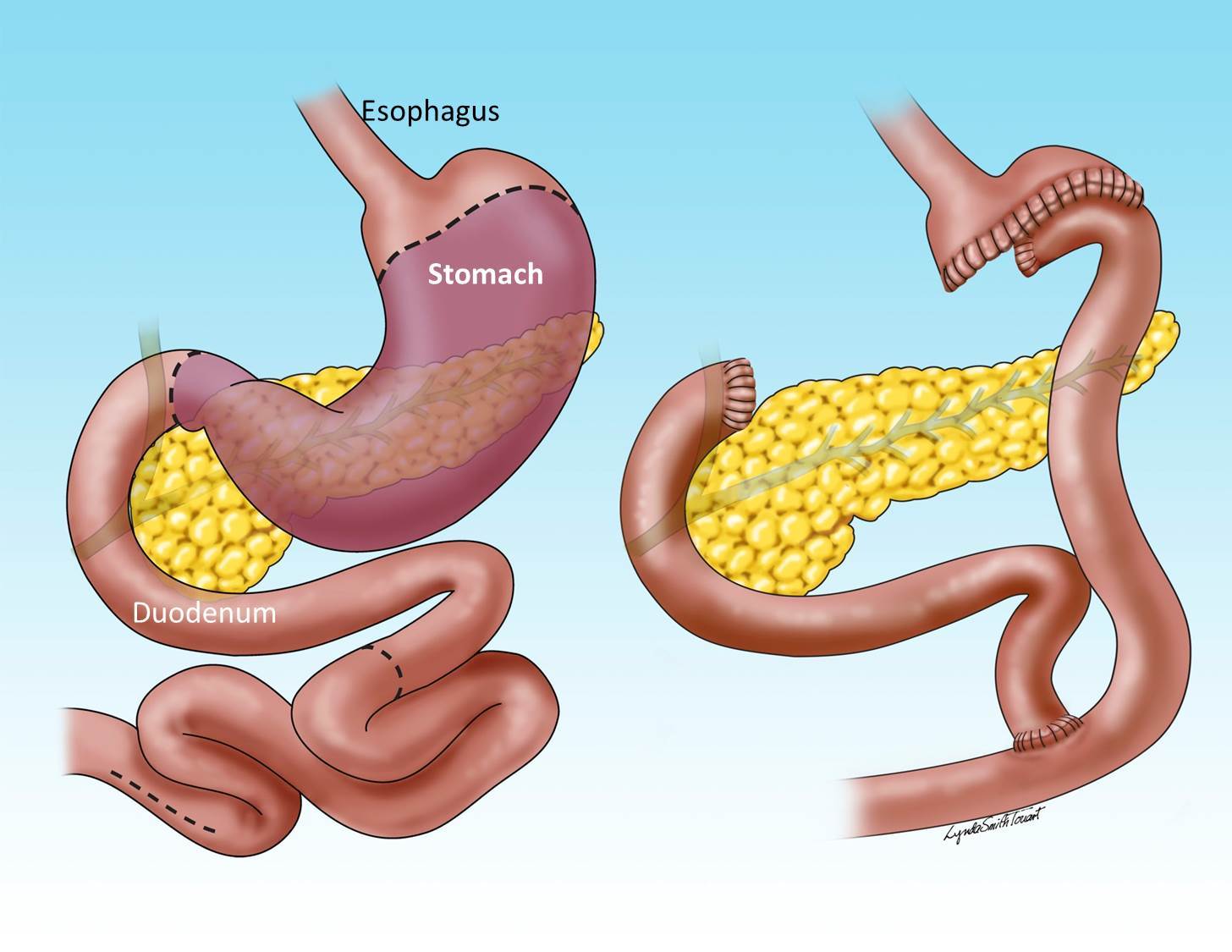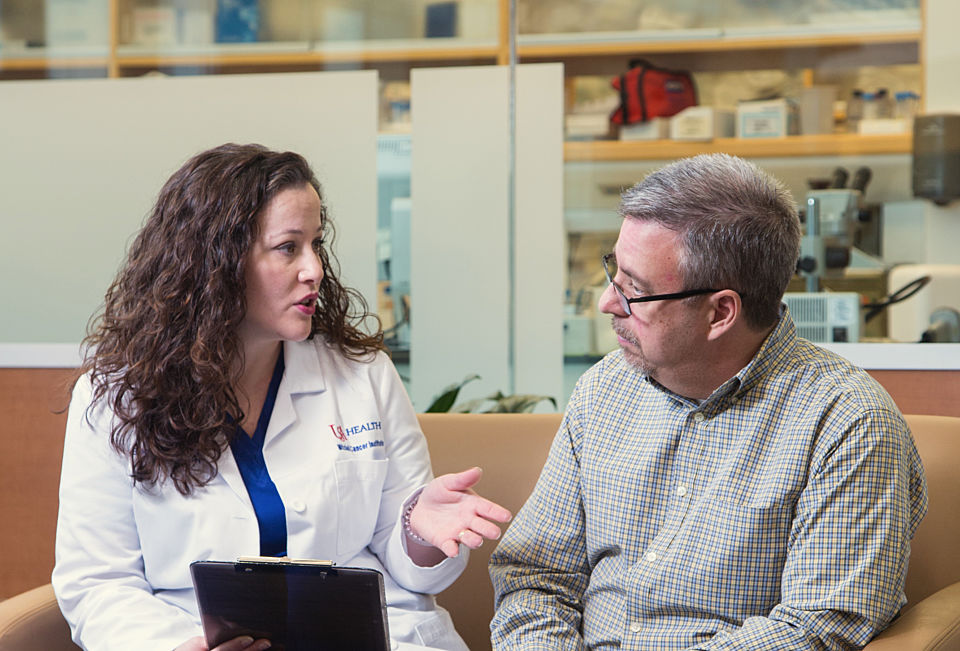What Is Stomach Cancer?
Stomach, or gastric, cancer starts in the lining of the stomach wall. Gastric adenocarcinoma, the most common form of stomach cancer, is found in approximately 20,000 people typically older than 65 in the United States each year. Males are more likely to have this cancer than women. Other, less common, types of stomach cancer include lymphoma, cancer of the muscle or connective tissue of the stomach wall, and carcinoid tumors that occur in the hormone-producing cells of the stomach.
Risk Factors
- H. pylori bacteria that can live in the digestive tract for years
- Diet high in smoked and salted foods
- Ethnicity–stomach cancer is more common in Asians, Hispanics and African Americans
- Family history of stomach cancer
- Family history of other cancers, particularly breast cancer
- Pernicious anemia–a vitamin B-12 deficiency anemia
- Menetrier's disease–reduces acid-producing cells in the stomach and decreases stomach acid
- Blood type A
Symptoms
- Pain or discomfort in the upper abdomen
- Loss of appetite
- Weight loss
- Nausea and/or vomiting
- Bloating after eating
- Heartburn
Diagnosis and Staging
The diagnosis of gastric cancer is commonly made by endoscopy, in which a small tube with a camera at the end is inserted through the mouth into the stomach. After diagnosis, certain tests are performed to find out how advanced your tumor is. These tests may include:
- Endoscopic ultrasound
- CT scans
- PET scans
- Laparoscopy–a minimally invasive procedure in which a camera is inserted into the abdominal cavity. The surgeon looks inside of the abdomen, especially on the outside of the stomach, for evidence of spread of the cancer. Tissue samples are removed for a pathologist to examine.
Stages of Gastric Cancer
The stage of a cancer is a standardized description of how far (advanced) a cancer is. The higher the stage, the more advanced the cancer. Stage 0 describes gastric cancer that is only found on the innermost lining (mucosa) of the stomach. Increased stage indicates further spread of the cancer into the stomach wall and an increased number of lymph nodes that contain cancer. Stage 4 describes cancer that has spread to other organs, such as the liver and lungs.
Treatment
Treatment of gastric cancer involves a combination of surgery, chemotherapy and radiation therapy, depending on the stage of your cancer. In general, there are two main strategies:
- Chemotherapy before and after surgery
- Surgery followed by chemotherapy and radiation therapy
Our oncology team of surgeons, medical oncologists and radiation oncologists work together to choose the treatment strategy that is best for each individual patient.
Surgery
Surgery (gastrectomy) is the most common form of treatment for gastric cancer. The tumor may be removed by taking out part or all of the stomach. Nearby lymph nodes are also removed and examined for evidence of cancer spread. In some patients, these operations can be performed laparoscopically.

Figure 1. Distal gastrectomy with Bilroth II reconstruction, performed for cancers of the lower stomach. Before (left) and after (right) diagrams of the anatomy.

Figure 2. Subtotal gastrectomy with Roux-en-Y reconstruction, performed for cancers of the upper or middle stomach. Before (left) and after (right) diagrams of the anatomy. If the entire stomach needs to be removed, the small intestine is then connected to the lower esophagus.
Chemotherapy
Chemotherapy involves a drug or combination of drugs taken by the patient to kill cancer cells in the body. Chemotherapy may be given in a number of different settings:
- Before and/or after surgery to improve cure rates
- To relieve symptoms such as bleeding or pain
- To prolong life when surgery is not possible
Radiation Therapy
Radiation therapy is integral part in treating gastric cancer. Together with chemotherapy, it is used to improve cure rates after surgery. Radiation therapy is useful for alleviating symptoms such as bleeding caused by the tumor.


